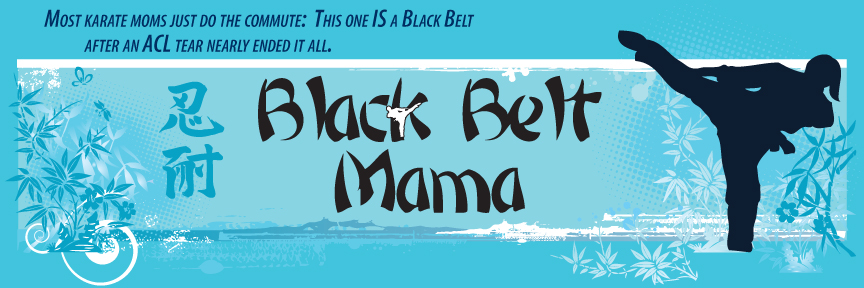March 7, 2014
Six Lessons I’ve Learned from Running a Youth Sports Organization
As I come up on my 3rd anniversary of being Co-President of a USA Swimming aquatic club, I’ve learned many lessons. Although there have been a lot of great times, some of these lessons have been hard ones to learn. I’ve learned a lot about the nature of people, some good things and some bad things. I’ve learned that every situation has two sides to the story: the accurate story, and the one that will told by people who don’t like you or your decisions. Some of the toughest lessons I’ve learned involve my kids, and how they’ll be treated by others who are only concerned with themselves, and/or disagree with the club’s direction. It’s been a fun ride, for the most part, as this board, the coaches and I have worked to grow our club’s success and create a lasting team culture. Some of the lessons I’ve learned are ones that could help others lead youth sports organizations, so I’d like to share.
1. Not everyone is going to like you. Learn to deal with it.
“I can not give you the surefire formula for success, but I can give you the formula for failure, which is: Try to please everybody.” -Herbert B. Swope
For every 10 new friends I’ve made running this swimming club (and I’ve made a lot of wonderful new friends), I’ve probably made an enemy or two. It’s never been intentional. It’s just that, for the most part, many adults do not like to read or follow rules. While the people who dislike me can complain all they want about whatever their issue is of the day, the one thing they can’t do is accuse me, or our board, of being inconsistent. We have worked tirelessly to create policies that protect the club and its swimmers and coaches; and lay the ground rules for our business practices. The other night a Mom approached me and told me that her swimmer just wasn’t into it anymore. She said she’d like a refund. I politely told her, “no.” She was shocked to hear this word. However, she signed the paperwork that says there are no refunds, except for documented medical reasons or a family relocation. She immediately acted angry with me, and went off to complain to another parent. To them, I’m Maleficent. To me, I’m a volunteer parent President who took on the duty of protecting the club’s best interests, including the financial interests. Policies and procedures are really important to have and to follow, which leads me to my next lesson.
2. No matter how many policies and procedures you have, there’s always going to be someone who tries to twist the words or the meanings to make them something they are not. Get an outsider’s opinion and help.
Recently, we had an incident at our club that forced us to take a good, hard look at our policies and procedures for dealing with violations of our Code of Conduct. As a writing student in college, my professors used to tell me to write something and put it away. They said to always look at your writing with fresh eyes. Sometimes, when you’ve been staring at a policy for three years, all looks good. Sometimes those “fresh eyes” need to come from someone else. So, we did what made sense. One of our swim parents is a lawyer and we asked him to sit down with us and take a look at our documents, waivers, etc. He didn’t just take a look. He dug in and revised documents for future registrations. He identified weaknesses that we hadn’t seen before. And he didn’t just tell us about it; he got to work revising. He has become our volunteer legal adviser and he’s taken a lot of the pressure off of the board, just by being available to consult with us. Tap the resources that are available to you within your group of parents. It never hurts to ask, and most of the time, people are happy to help.
3. Delegate and put it back on those who suggest it.
There are some things that can’t be delegated, so take care of those things. But whatever you can delegate to reliable people, do. Last year, the woman who was making all of our holiday party and banquet plans offered to join our board as a Vice President. We jumped at the opportunity to bring her on board. There are so many people who have suggestions for things with the club; but one thing we’ve learned is it bat it back to the person who suggested the change and see what time they’re willing to put in to making things happen. We have some parents whose swimmers wants to stay with the club through high school. Recently, I asked one of these parents to research what other clubs offer for high school swimmers. She was more than happy to do the research and report back, and I was happy to get the help. Then there are those who love to share their ideas and tell you all the things you should be doing, but wouldn’t lift a finger to help get it going. Let their criticism fall on deaf ears (refer back to #1). Focus on the important stuff and don’t take on too many side projects, especially those suggested by people not willing to help. But if someone is willing to take a lead on an idea that would benefit the club, you’ve just found yourself another volunteer. And that is always a good thing.
4. Team Culture is EVERYTHING!
There’s one at every club. . . a parent who is all about their own child and could care less about anyone else. They attend no team functions. They don’t care about what the other swimmers at the club are doing (unless they’re beating their own kid). They feel that practices should revolve around their kid, and that no one else matters. They don’t congratulate other swimmers on a job well done. They never volunteer to do anything, ever. These are the “black holes” that suck energy from your team culture. So what can you do about it? Not much during the peak of your season. However, you can focus on those contributing to the team culture and try to get everyone on board. But if that doesn’t work, and you’re a private club, you can make decisions about future enrollment. Have you ever heard the saying, “There is no ‘I’ in team?” Have you also heard the one that says, “I found the ‘i” in ‘team.’ It’s in the “A” hole”? It’s very true. Promote the team culture all you can. But those who don’t buy in. . . can find another team. Don’t be afraid to drop in numbers initially if the long term pay-off will be a solid team culture and more committed families/athletes down the road. After a small exodus of “black holes” last year, our club came back bigger and stronger than ever before. It’s a calculated risk worth taking.
5. Listen to what people are telling you.
We recently had try-outs for our Spring session at our club. One parent was going on and on about how her swimmer only wanted to do a “clinic,” that attending a meet would be out of the question, that they would not be coming back next year because they were only looking for a quick fix and stroke work heading into the summer. You’re not going to convert people like this into committed ones. It doesn’t happen. Don’t clog up lanes to raise numbers if you don’t have to. A club should benefit an athlete, but the athlete should also benefit the club by being a team player, following the club’s vision/mission, and truly wanting to be a part of the team culture. If they’re not, say goodbye before it starts, and leave that space for someone committed to the team ideals.
6. Don’t get caught looking backwards.
“Whenever you see a successful business, someone once made a courageous decision.”
One of the most important things a youth sports board should do, is focus on the future. Provide opportunities to educate your coaches. Look for ways to improve the club, grow the club (if you can’t grow numbers, grow your competitiveness), and make people want to be a part of the forward motion. Change is always hard; but it’s necessary if you want to move forward. After a couple years of general team malaise, our club has taken off. In virtual championship rankings, we went from barely making the top half to being the top third. Our national ranking moved up over 300 spots; within our LSC, we moved up almost 30 spots, and we continue to rise. Our numbers are strong and our kids continue to improve. As a club board, that’s all you can really ask for. But you’re only going to continue to rise if you’re focused on the future.
“If you do what you’ve always done, you’ll get what you’ve always gotten.”-Tony Robbins.
Truer words were never spoken.
Are you part of a parent youth sports board? What lessons have you learned?























@blackbeltmama YES! As someone in lay leadership in quite a few organizations this is absolutely something I needed to read today. Thank you
Your lessons is an eye opener for us. We will use this in our Kids MMA parenting program. Thank you